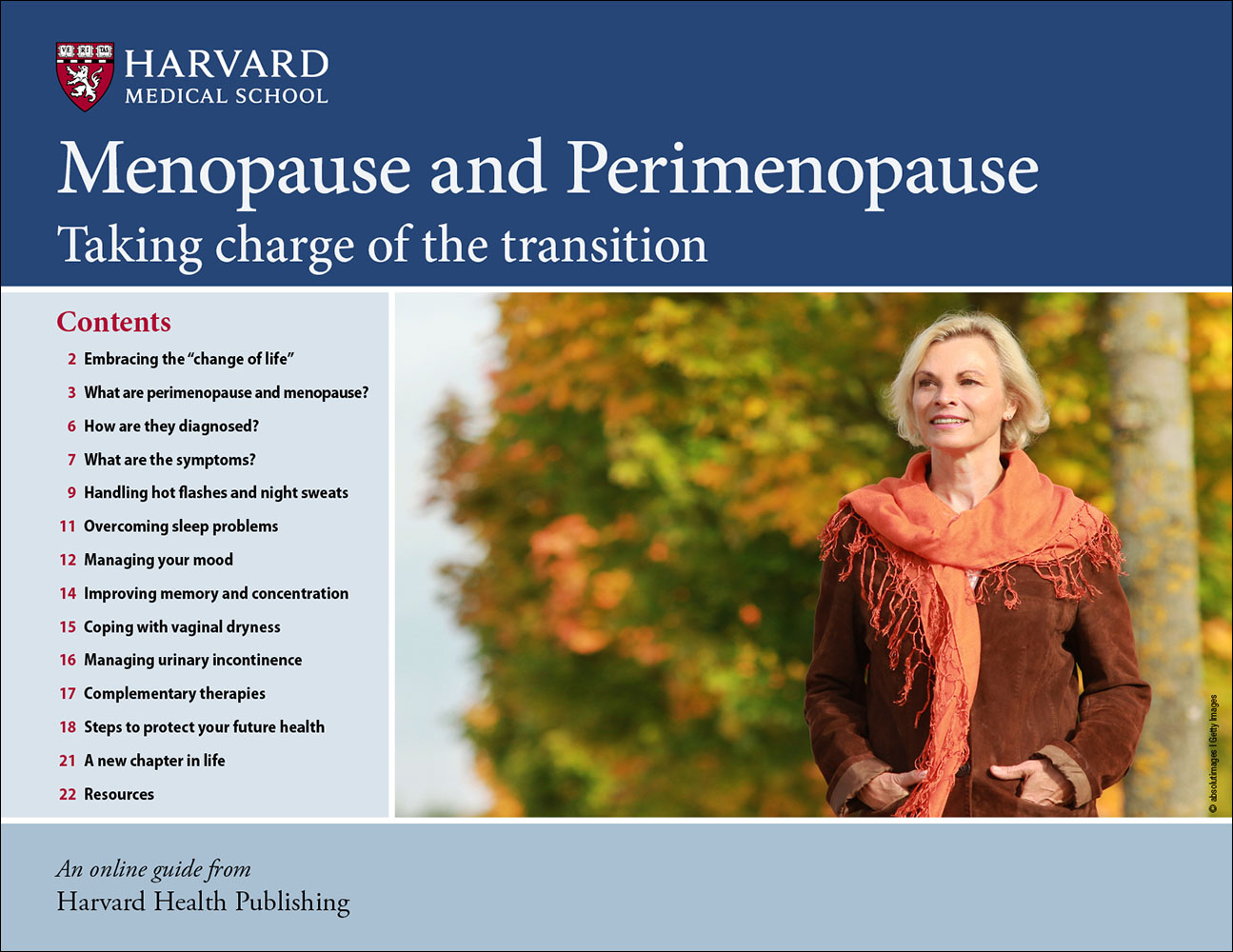Outsmarting perimenopause
Our bodies can change in sneaky ways during the menopause transition, but commonsense lifestyle tweaks can smooth a bumpy path.
- Reviewed by Toni Golen, MD, Editor in Chief, Harvard Women's Health Watch; Editorial Advisory Board Member, Harvard Health Publishing; Contributor
 What to Expect When You're Expecting
What to Expect When You're ExpectingIndeed, no alarm bells signal you're beginning the transition to menopause, defined as complete after you've gone 12 consecutive months without a period. And while you've no doubt heard the "highlights" — that you might experience hot flashes, night sweats, and vaginal dryness as menopause approaches — there's more than a small chance that from your early 40s onward, you'll be dealing with an array of head-to-toe symptoms that don't seem to be linked to menopause.
To continue reading this article, you must log in.
Subscribe to Harvard Health Online for immediate access to health news and information from Harvard Medical School.
- Research health conditions
- Check your symptoms
- Prepare for a doctor's visit or test
- Find the best treatments and procedures for you
- Explore options for better nutrition and exercise
I'd like to receive access to Harvard Health Online for only $4.99 a month.
Sign Me UpAlready a member? Login ».
About the Author

Maureen Salamon, Executive Editor, Harvard Women's Health Watch
About the Reviewer

Toni Golen, MD, Editor in Chief, Harvard Women's Health Watch; Editorial Advisory Board Member, Harvard Health Publishing; Contributor
Disclaimer:
As a service to our readers, Harvard Health Publishing provides access to our library of archived content. Please note the date of last review or update on all articles.
No content on this site, regardless of date, should ever be used as a substitute for direct medical advice from your doctor or other qualified clinician.













